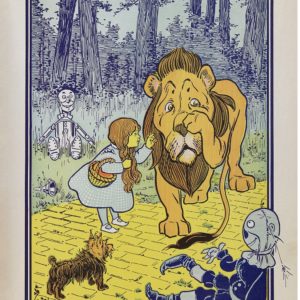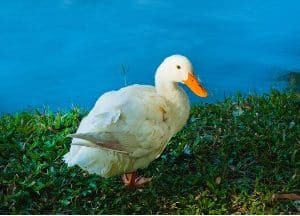Can we belief something we see? Or hear? Final week noticed the information that James Earl Jones was retiring from his position voicing Darth Vader within the Star Wars franchise, and farming it out to AI. Temporary musings comply with.
Particularly, Jones was licensing the rights to his voice to Lucasfilm so they may recreate the voice by way of AI. Synthesizing voices and pictures is now one thing even the general public (or at the least the data-savvy public) can do. In associated information from final week, the analysis lab OpenAI eliminated the waitlist for its DALL-E platform, which may create startlingly actual photos from a easy textual content phrase (see https://openai.com/weblog/dall-e-now-available-in-beta/). Comparable instruments exist to imitate an individual’s voice (see https://beebom.com/deepfake-ai-voice-generator-mimic-celebrity-voices/).
AI’s potential to imitate people to the purpose the place artificial photos and voices are nearly indistinguishable from the true factor creates potentialities for all kinds of mischief. This new frontier for AI is a supply of nice concern to the group that worries about moral points in AI.
However did James Earl Jones’ rights to his personal voice come naturally? Or did he safe these rights in an earlier Star Wars contract?
The Cowardly Lion versus Lestoil

It seems that rights to our personal picture and voice are secured to us by a “proper of publicity.” This was examined considerably comically in a authorized contest between Bert Lahr, greatest often called the Cowardly Lion within the Wizard of Oz, and Adell Chemical Firm, greatest often called the maker of Lestoil cleaner.
Enter the Duck


Lahr claimed that his distinctive voice was unlawfully appropriated by Lestoil in a cartoon industrial that includes a duck. Particularly, Adell employed “because the voice of the aforesaid duck, an actor who specialised in imitating the vocal sounds of the plaintiff.” He additional claimed that the “huge public tv viewers and the leisure business” believed that the phrases spoken and the comedian sounds made by the cartoon duck have been provided and made by Lahr, “buying and selling upon his fame and renown.”
Moreover, Lahr alleged damages as a result of individuals would possibly now imagine he had been decreased to creating nameless duck commercials. And, so as to add insult to damage, not making them properly. Lahr acknowledged that the standard of the duck’s voice within the industrial was inferior to what he may have produced and led individuals to suppose that his talents had deteriorated. Lahr’s 1961 case is commonly cited in research of the “proper of publicity.” He didn’t prevail, however the ruling didn’t undercut the essential proper of publicity. The court docket merely felt that his injury declare,
“Your (nameless) industrial appeared like me, however not so good,” was too broad, and would result in extreme litigation. The proper of publicity is now deeply embedded in widespread and statutory regulation on the state degree, generally as a part of a “proper to privateness.”
Ethical #1
If it appears like a duck and walks like a duck, it may be AI.
Ethical #2
Extra significantly, there are a few classes for these working towards innovative AI. Some new applied sciences and instruments are so alluring that they only name out to be pursued and perfected as objects of technical surprise in and of themselves, with out regard to context, objective or penalties, together with authorized penalties. Finally, accountable information scientists want to think about how a cool new know-how will in the end serve bigger reputable enterprise or organizational targets (and pay attention to the hurt that may be brought on alongside the way in which). Practitioners of rising applied sciences are understandably immune to rules and legal guidelines geared toward proscribing what they will do, and, certainly, focused legal guidelines like which might be typically counter-productive in the long term. The story of the “proper of publicity” reminds us that, within the absence of AI-centric legal guidelines, it’s nonetheless not the Wild West. There are time-honored authorized constraints lengthy predating the appearance of AI that also have to be obeyed by these growing AI purposes.
